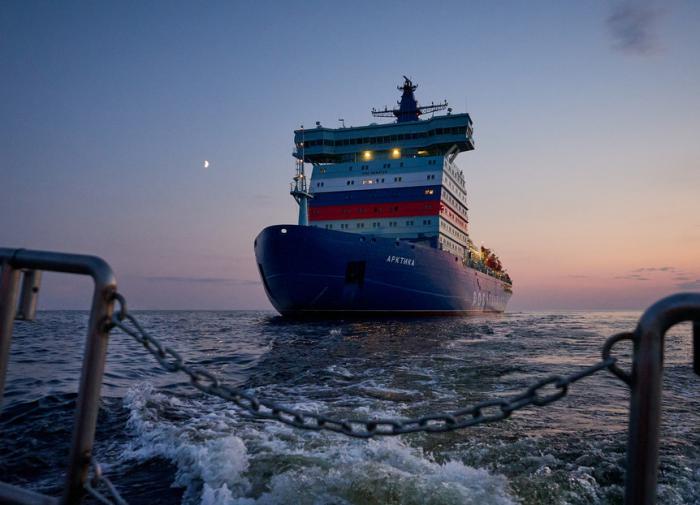The West will always put spokes in Russia's wheels, especially in the Arctic
Western countries manipulate ecological issues to undermine Russia's strategic projects in the Arctic, First Deputy Secretary of the Security Council of the Russian Federation Yuri Averyanov said on May 11.

Ecology as a way to oust a competitor
According to Averyanov, the West may work to oust competitors from the Arctic under the pretext of environmental protection.
"We can see that Western countries turn environmental issues into an instrument of pressure, discrimination and unfair competition," RIA Novosti quoted Averyanov as saying.
To exemplify his point of view, the official referred to the expulsion of Russian fishing vessels from Svalbard's fish protection zone. This is happening under the pretext of the need to protect the marine environment of the region.
According to Averyanov, Western non-governmental environmental organizations play an important role in this.
"We often see Western environmentalists protesting violently against our projects, although on the other side of the border foreign enterprises continue working uninterruptedly, and environmental questions do not arise," he said.
At the same time, foreign ecologists often advocate the preservation of vulnerable ecosystems in the Arctic located nowhere else, but near Russian strategic facilities, where deposits or shipping routes are located.
"Interestingly, no other country has done the amount of work that Russia has done to eliminate environmental damage. Moreover, the environmental responsibility of Russian companies meets and often significantly exceeds most progressive world standards," Averyanov said.
According to him, the noble pretext obviously serves only as a cover to interfere into Russia's domestic affairs and disrupt strategic projects."
Russia's never-ending rivalry with the West in the Arctic
The rivalry between Russia and the West in the Arctic has been talked about for years. For example, in October last year, the German publication Die Welt outlined the essence of Western claims at this point.
"The Kremlin wants to populate the snowy and barely adapted for economic activity Far North and makes efforts to ensure military protection of its borders that have been expanding due to global warming," the article said.
Although Russia cannot take all of the Arctic, it uses room for maneuver demanding payment for the use of the Northern Sea Route and declaring exclusive rights of the Russian fleet to navigate it, the article further said.
"The West is outraged, but can do nothing about it: Moscow controls this commercial route, and foreign shipping companies are only left to recognize Russia's de facto monopoly," the article noted.
Clearly, the talk about the "Russian threat" pursues the prosaic goal to increase funding for certain projects (it goes about the United States here in the first place). Yet, this is a long process that takes time. Attracting environmental organizations is a much less costly way to proceed here.
This way can be fruitful indeed, and one can see it in the example of Nord Stream 2, the construction of which has been slowed down for a long time for allegedly environmental reasons. Obviously, such opportunities will be actively used in the Arctic.
What can Russia do here? Russia should be more careful about the justification of environmental safety of projects. Relatively speaking, documents should be immaculate in every way possible. This is a hard nut to crack indeed, but there is no way around it.
Subscribe to Pravda.Ru Telegram channel, Facebook, RSS!


